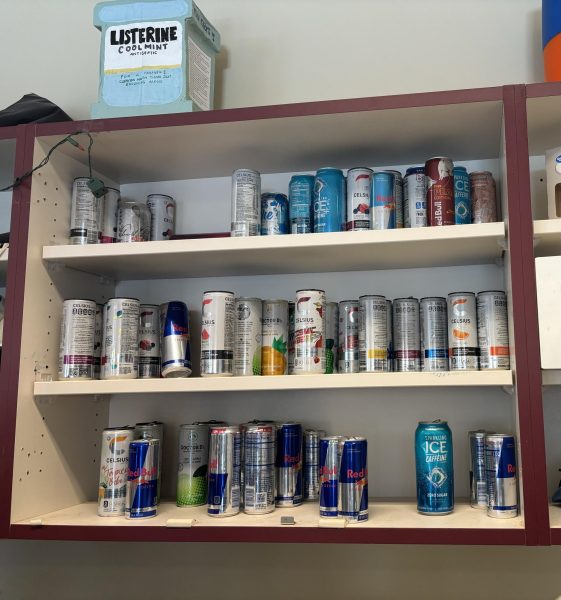A Community Effort: Portsmouth High School’s Approach to Equitable Mental Health Resources
Wellness Club members Senior Ava Caldwell and Junior Jillian Richmond run the bake sale during finals.
In the aftermath of the Covid-19 pandemic, conversations surrounding student mental health have increased, especially regarding the influx of stressors and risk factors.
Social isolation, increased stress regarding familial finances, online school, and general uncertainty, among other factors, have increased anxiety and stress levels for high school-aged students. People of all ages and backgrounds have grappled with the same looming uncertainty of a global pandemic.
According to the Centers for Disease Control (CDC), in 2021, more than 4 in 10 (42%) students felt persistently sad or hopeless, and nearly one-third (29%) experienced poor mental health.
Poor mental health refers to alterations in thinking, mood, or behaviors associated with distress and/or impaired function. Mental health does not require a diagnosis to be considered poor– it is up to the individual to determine.
As the number of risk factors increases, Portsmouth School District Psychologist Dr. Jim Sparrell says, “Mental health is a community concern, so we must all work together and take care of one another.” Sparrell adds, “Mental health is not a choice; it is built by one’s surroundings. Everything around you contributes to your mental well-being.”
Mental health resources become somewhat of an equity concern, as traditional mental health services are expensive. In New Hampshire, the average out-of-pocket cost for a therapy session is $150.
To add, mental health resources during the pandemic were often difficult to access, as sessions may have been conducted over the computer, and there was a greater need but the same number of resources.
It has become increasingly necessary for schools to provide their students with equitable resources to ensure that every student can access the services that would benefit them.
Portsmouth High School provides several mental health-related resources to help students in need. The guidance department, school psychologists, and other student support staff help to connect students with appropriate resources to help them thrive in and out of the building. Recently, representatives from the Seacoast Mental Health Center have come to Portsmouth to meet with students so that they do not need to leave the school to access resources.
In addition to resources provided by the school directly, students have stepped up to address the issue in their own way.
Founder and President of Portsmouth High School’s Wellness Club, senior Alice Weir, noticed a gap in addressing mental health among her peers, noting that “students didn’t understand how to bring up or talk about mental health related topics.” Alongside PHS alumni and current New York University freshman Maya McKinnon, she created Wellness Club to educate and advocate for mental health resources with the school. The organization holds dialogues, meets with the school board, and even holds bake sales during finals week to minimize stress and increase motivation during exams.
The organization’s ultimate goal is “to encourage others to change their attitude towards mental health and to advocate for themselves,” says Weir. She is confident that the organization and student body will continue to thrive after she graduates in the spring.
In addition to Wellness Club, other student-initiated efforts materialize in the form of signs in the hallways saying “You matter,” “The world is a better place with you in it,” and “You are enough,” to reach as many students and staff as possible.
As the school and student body prioritize fine-tuning mental health resources within the school, a sense of unity builds: “We are all starting to see how mental and physical health goes hand in hand,” says Weir. “It’s great to see the conversations surrounding this topic evolving.”
Sources:
Center for Disease Control and Prevention. “Data and Statistics on Children’s Mental Health.” Center for Disease Control and Prevention, www.cdc.gov/childrensmentalhealth/data.html. Accessed 3 Apr. 2023.
Sparrell, Jim. In-person Interview. March, 2023.
Weir, Alice. In-person Interview. March, 2023.










